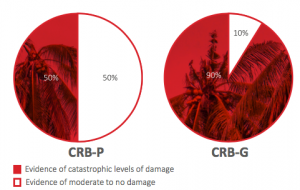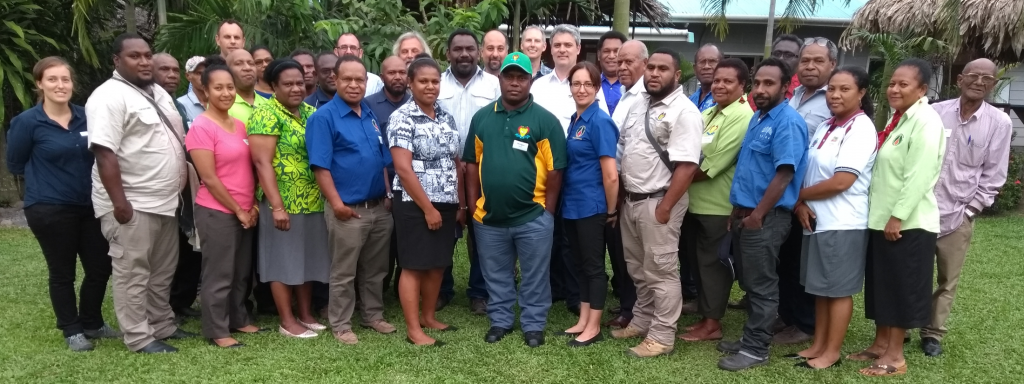At the end of October, PNGOPRA hosted a workshop dedicated to improving the management of the Coconut Rhinoceros Beetle (CRB) pest in Papua New Guinea and Solomon Islands.
BACKGROUND
An imminent threat to Pacific livelihoods and economies reliant on coconuts; oil palm and other palm species, has been identified. A new biotype of Coconut rhinoceros beetle (CRB), Oryctes rhinoceros was first discovered in Port Moresby in 2009. This biotype known as CRB Guam (CRB-G) is highly invasive with the ability to cause significant damage and to rapidly adapt to its environment. CRB-G is resistant to known isolates of the Oryctes nudivirus (OrNV) which had previously proven to be an effective biocontrol agent against the CRB-Pacific (CRB-P) biotype.
CRB-G has invaded five Pacific Island countries in only eight years compared to the CRB-P biotype, which has not expanded its range in 40 years. Uncontrolled infestations of CRB-G can kill most palms within a year, and given its highly invasive nature, poses a major economic and food security threat throughout the pacific.
WORKSHOP OUTCOMES
Addressing the spread and threat of the CRB-G requires a concerted effort and collaboration. Various organisations, government entities, smallholder
representatives and private entities affiliated with the coconut and oil palm industry in PNG and other international affiliates participated in the 3-day workshop. In light of the urgency of the CRB-G threat, the participants committed to partnering in a PNG CRB-G Taskforce to coordinate efforts and activities aimed at stopping the spread of CRB-G in PNG. The Taskforce will
- Establish the current distribution status of the pest
- Advocate and facilitate awareness, monitoring and surveillance programs
- Provide a platform for a network of scientists, government, NGO, and affected parties to coordinate management activities
Establish a response plan that uses scientifically proven control methods and containment strategies to protect our coconut and oil palms.




